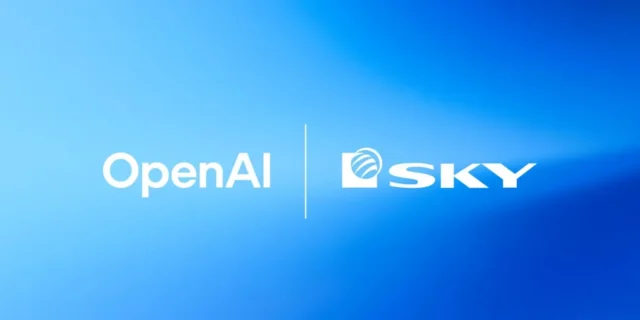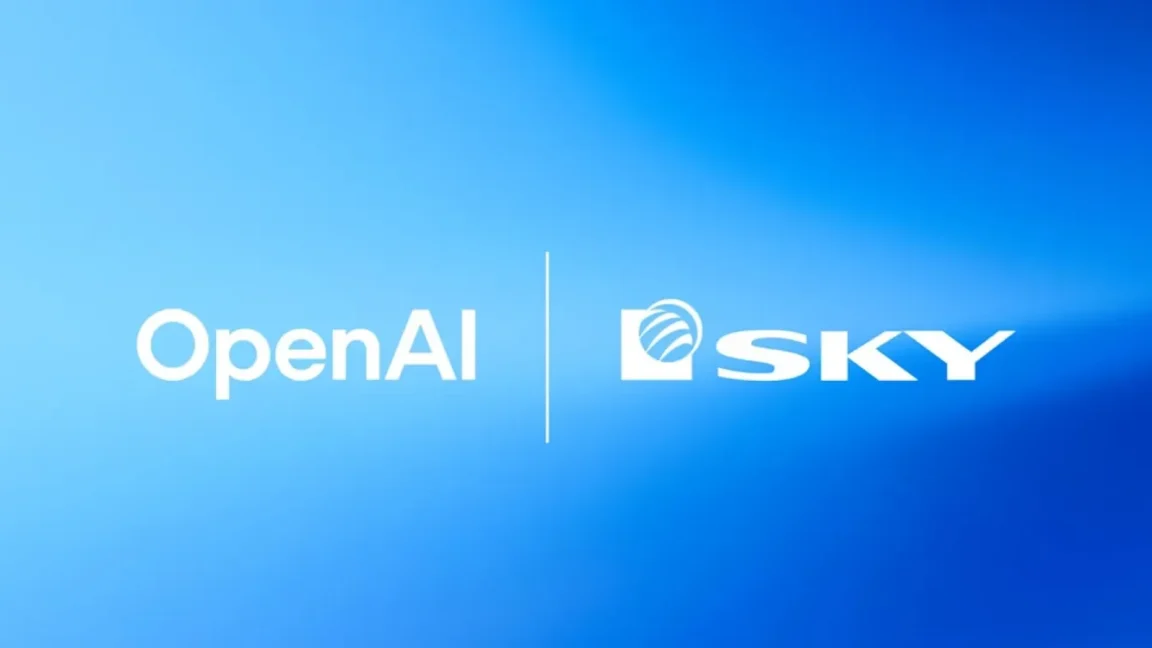- Регистрация
- 17 Февраль 2018
- Сообщения
- 39 328
- Лучшие ответы
- 0
- Реакции
- 0
- Баллы
- 2 093
Offline
The acquired firm was working on a tool to control macOS directly with AI.


The simple graphic used to announce the acquisition. Credit: OpenAI
OpenAI has acquired Software Applications Incorporated (SAI), perhaps best known for the core team that produced what became Shortcuts on Apple platforms. More recently, the team has been working on Sky, a context-aware AI interface layer on top of macOS. The financial terms of the acquisition have not been publicly disclosed.
“AI progress isn’t only about advancing intelligence—it’s about unlocking it through interfaces that understand context, adapt to your intent, and work seamlessly,” an OpenAI rep wrote in the company’s blog post about the acquisition. The post goes on to specify that OpenAI plans to “bring Sky’s deep macOS integration and product craft into ChatGPT, and all members of the team will join OpenAI.”
That includes SAI co-founders Ari Weinstein (CEO), Conrad Kramer (CTO), and Kim Beverett (Product Lead)—all of whom worked together for several years at Apple after Apple acquired Weinstein and Kramer’s previous company, which produced an automation tool called Workflows, to integrate Shortcuts across Apple’s software platforms.
The three SAI founders left Apple to work on Sky, which leverages Apple APIs and accessibility features to provide context about what’s on screen to a large language model; the LLM takes plain language user commands and executes them across multiple applications. At its best, the tool aimed to be a bit like Shortcuts, but with no setup, generating workflows on the fly based on user prompts.
It bears some resemblance to features of Atlas, the ChatGPT-driven web browser that OpenAI launched earlier this week, and this acquisition piles on even more evidence that OpenAI has ambitions beyond a question-and-answer chatbot.
OpenAI can use the SAI team’s knowledge of the macOS platform to develop new ways for ChatGPT not just to make suggestions about, but to agentically work directly on users’ macOS environments.
So far, most of OpenAI’s native desktop efforts have been on macOS; this may be because its core audience of early adopters includes a large cohort of front-end web and mobile application developers, many of whom use macOS as their primary platform.
It’s unclear at this point whether development on Sky will continue as originally planned or be adapted into something meaningfully different under the OpenAI umbrella—but the public statements by both companies about the acquisition suggest this is about more than just a macOS application.


The simple graphic used to announce the acquisition. Credit: OpenAI
OpenAI has acquired Software Applications Incorporated (SAI), perhaps best known for the core team that produced what became Shortcuts on Apple platforms. More recently, the team has been working on Sky, a context-aware AI interface layer on top of macOS. The financial terms of the acquisition have not been publicly disclosed.
“AI progress isn’t only about advancing intelligence—it’s about unlocking it through interfaces that understand context, adapt to your intent, and work seamlessly,” an OpenAI rep wrote in the company’s blog post about the acquisition. The post goes on to specify that OpenAI plans to “bring Sky’s deep macOS integration and product craft into ChatGPT, and all members of the team will join OpenAI.”
That includes SAI co-founders Ari Weinstein (CEO), Conrad Kramer (CTO), and Kim Beverett (Product Lead)—all of whom worked together for several years at Apple after Apple acquired Weinstein and Kramer’s previous company, which produced an automation tool called Workflows, to integrate Shortcuts across Apple’s software platforms.
The three SAI founders left Apple to work on Sky, which leverages Apple APIs and accessibility features to provide context about what’s on screen to a large language model; the LLM takes plain language user commands and executes them across multiple applications. At its best, the tool aimed to be a bit like Shortcuts, but with no setup, generating workflows on the fly based on user prompts.
It bears some resemblance to features of Atlas, the ChatGPT-driven web browser that OpenAI launched earlier this week, and this acquisition piles on even more evidence that OpenAI has ambitions beyond a question-and-answer chatbot.
OpenAI can use the SAI team’s knowledge of the macOS platform to develop new ways for ChatGPT not just to make suggestions about, but to agentically work directly on users’ macOS environments.
So far, most of OpenAI’s native desktop efforts have been on macOS; this may be because its core audience of early adopters includes a large cohort of front-end web and mobile application developers, many of whom use macOS as their primary platform.
It’s unclear at this point whether development on Sky will continue as originally planned or be adapted into something meaningfully different under the OpenAI umbrella—but the public statements by both companies about the acquisition suggest this is about more than just a macOS application.
